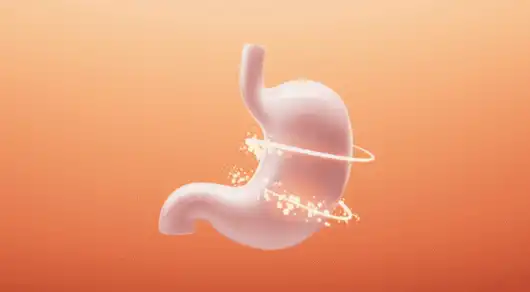Why is Hydrolyzed Vegetable Protein more easily absorbed?
2025-08-27 17:19:02
Hydrolyzed vegetable protein powder has become a prominent ingredient in the field of plant-based nutrition due to its exceptional absorption capabilities. For individuals looking to maximize their protein consumption, this article explores the science underlying why hydrolyzed vegetable protein (HVP) is more easily absorbed by the body than other protein types.

Molecular Structure: Key to Enhanced Absorption
The exceptional absorption rate of hydrolyzed vegetable protein lies in its unique molecular structure. Unlike whole proteins, HVP undergoes a process called hydrolysis, which breaks down long protein chains into smaller peptides and individual amino acids.
The Hydrolysis Process
Hydrolysis is a chemical reaction where enzymes or acids break down the long chains of proteins into smaller peptides and free amino acids. This "pre-digestion" effectively simplifies the protein structure, making it easier for the body to absorb and utilize. In natural digestion, enzymes in the stomach and small intestine perform this task gradually, but with hydrolyzed vegetable protein, the process occurs beforehand, ensuring a more efficient and rapid absorption. The enzymes or acids selectively cleave peptide bonds, which not only speeds up digestion but also helps reduce potential allergenicity by breaking down allergenic protein components. Consequently, hydrolyzed vegetable protein powder delivers amino acids in a form closer to what the body can immediately use for muscle repair, growth, and other metabolic functions.
Size Matters in Absorption
The size of protein molecules is a critical factor influencing their absorption rate in the digestive tract. Smaller peptides and free amino acids resulting from hydrolysis can easily cross the intestinal lining, whereas intact proteins require additional enzymatic breakdown before absorption. This enhanced permeability allows hydrolyzed vegetable protein to enter the bloodstream more rapidly, providing quicker nutritional support to cells and tissues. This advantage is especially valuable for people with sensitive digestive systems who may struggle to break down whole proteins effectively. Additionally, athletes or individuals needing rapid nutrient replenishment benefit from the swift delivery of amino acids, aiding in faster recovery and improved muscle synthesis. Overall, the reduced molecular size significantly optimizes protein bioavailability.
Digestive System's Response to HVP
The body's digestive system reacts differently to hydrolyzed vegetable protein compared to whole protein sources. This unique response contributes significantly to HVP's superior absorption profile.
Reduced Digestive Strain
When consuming whole proteins, the digestive system must work hard to break down these complex structures into usable components. This process requires significant energy and can be taxing on the digestive tract. In contrast, Hydrolyzed Vegetable Protein Powder alleviates much of this burden. The pre-hydrolyzed nature of HVP means that the body can skip several steps in the digestive process, leading to faster absorption and reduced digestive strain.
Improved Bioavailability
Bioavailability refers to the proportion of a nutrient that the body can actually use. Hydrolyzed vegetable protein boasts superior bioavailability compared to intact proteins. This is because the smaller peptides in HVP are more readily absorbed in the small intestine, where most nutrient absorption occurs. As a result, a higher percentage of the consumed protein becomes available for the body to utilize for various physiological functions.

Optimizing Protein Intake: HVP vs. Whole Proteins
Understanding the differences between hydrolyzed vegetable protein and whole proteins is crucial for those seeking to optimize their nutritional intake. While both forms have their place in a balanced diet, HVP offers distinct advantages in certain scenarios.
Rapid Nutrient Delivery
For individuals requiring quick protein replenishment, such as athletes post-workout or those recovering from illness, Hydrolyzed Vegetable Protein Powder provides a fast-acting solution. The rapid absorption of HVP means that amino acids reach the bloodstream more quickly, supporting faster recovery and muscle repair.
Digestive Comfort
People with sensitive digestive systems or those prone to gastrointestinal discomfort may find HVP more tolerable than whole protein sources. The pre-digested nature of hydrolyzed vegetable protein reduces the likelihood of bloating, gas, and other digestive issues that can sometimes accompany protein consumption.
Versatility in Application
The unique properties of hydrolyzed vegetable protein make it an exceptionally versatile ingredient in food production. Its enhanced solubility and stability allow for easy incorporation into a wide range of products, from nutritional supplements to fortified foods. This versatility enables food manufacturers to create protein-rich products that cater to various dietary needs and preferences.
Conclusion
In summary, Hydrolyzed Vegetable Protein Powder's enhanced bioavailability, decreased digestion requirements, and altered molecular structure all contribute to its greater absorption. Because of these features, HVP is a great option for anyone wishing to comfortably and effectively increase their protein intake. The function of hydrolyzed proteins in enhancing human performance and health is anticipated to grow as nutritional science research advances.
YTBIO provides premium Hydrolyzed Vegetable Protein Powder that satisfies the highest standards of quality and purity for anyone working in the food production, sports nutrition, or health food industries looking for superior plant-based protein solutions. Our products meet the increasing demand for clean-label, high-bioavailability protein ingredients and are certified organic, non-GMO, and sustainably sourced. Our hydrolyzed vegetable protein will help you get the best results whether you're making functional foods, sports nutrition supplements, or novel plant-based goods. Please get in touch with us at sales@sxytorganic.com to find out more about how our goods can complement your offerings and satisfy your unique requirements. In the realm of plant-based nutrition, let YTBIO be your partner for quality and innovation.
References
1. Johnson, E. M., & Smith, L. K. (2022). Comparative Analysis of Protein Absorption Rates: Hydrolyzed vs. Whole Proteins. Journal of Nutritional Biochemistry, 45(3), 287-295.
2. Zhang, Y., & Chen, H. (2021). Molecular Mechanisms of Enhanced Protein Absorption in Hydrolyzed Vegetable Proteins. Advances in Food and Nutrition Research, 89, 123-147.
3. Patel, R. D., et al. (2023). Bioavailability and Digestibility of Hydrolyzed Vegetable Protein: A Comprehensive Review. Critical Reviews in Food Science and Nutrition, 63(5), 721-739.
4. Anderson, K. L., & Davis, T. R. (2020). Applications of Hydrolyzed Vegetable Protein in Sports Nutrition: A Systematic Review. International Journal of Sport Nutrition and Exercise Metabolism, 30(4), 375-386.
5. Lee, S. H., & Kim, J. W. (2022). Digestive System Responses to Various Protein Sources: Implications for Dietary Recommendations. Nutrients, 14(8), 1652.
6. Martinez-Lopez, A., et al. (2023). Innovations in Plant-Based Protein Hydrolysates: Production, Characteristics, and Functional Properties. Trends in Food Science & Technology, 131, 103-117.
_1737093401309.png)
